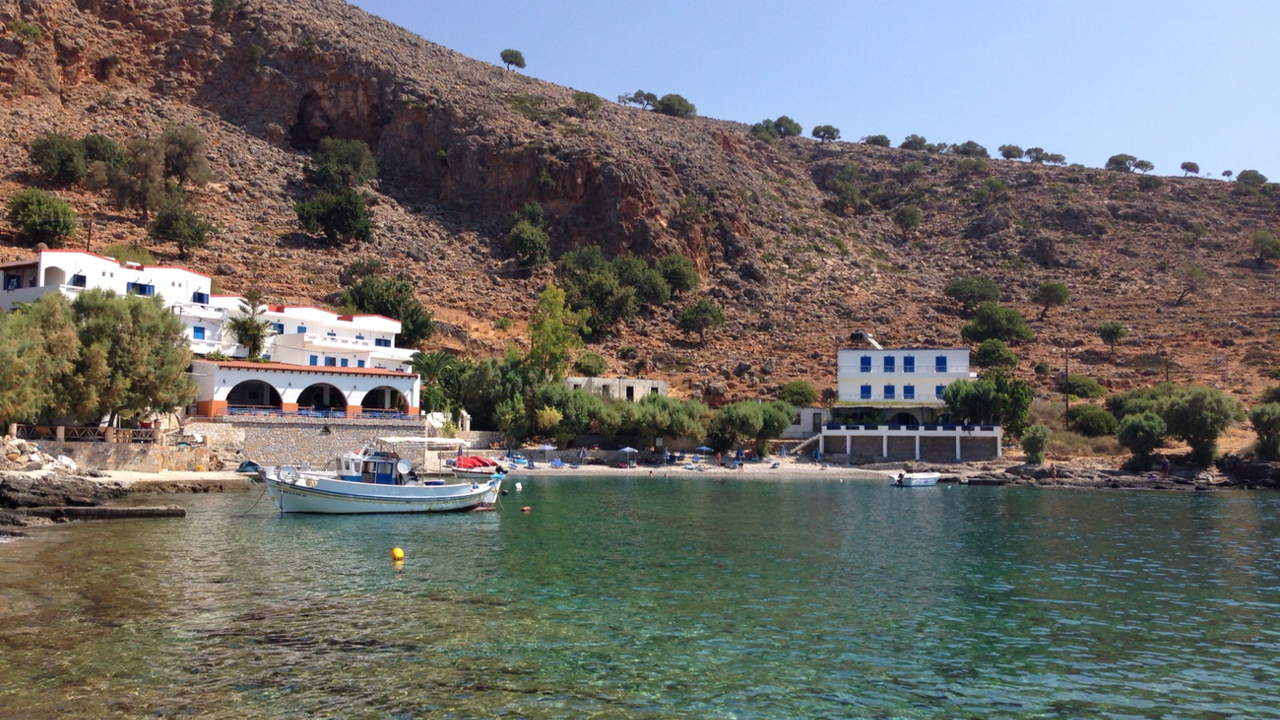The prisoner is piloting the vessel
Feb 16, 2020
Lyn and I were vacationing on the Island of Crete and walked & kayaked to a town, if you can call it that, called Phoenix, a tiny spot on the south of the island. It was also an intended destination for Paul and his fellow travelers, but they never made it.
We made slow headway for many days and had difficulty arriving off Cnidus. When the wind did not allow us to hold our course, we sailed to the lee of Crete, opposite Salmone. We moved along the coast with difficulty and came to a place called Fair Havens, near the town of Lasea. Act 27:7-8 NIV
The intent of the ship’s captain and the centurion was to ease up the coast to Phoenix and stay there for the winter. Back then it was more than a hotel with eight rooms and a small church. Paul, the prisoner, warned them not to proceed.
“Men, I can see that our voyage is going to be disastrous and bring great loss to ship and cargo, and to our own lives also.”
Things start well, but ended in near disaster. Throughout this process Paul is the prisoner, but he is actually the one leading the ship, and herein lies a lessen for those of us not officially in charge of our business, project or career. What did Paul do?
- He sought God for direction for the whole boat: his future was tied to the ship’s future, so he had to have the welfare of the whole in mind.
- He was not afraid to speak out. Everything was on the line, so he asked God what would happen, and he received direction for everyone.
After they had gone a long time without food, Paul stood up before them and said: “Men, you should have taken my advice not to sail from Crete; then you would have spared yourselves this damage and loss. But now I urge you to keep up your courage, because not one of you will be lost; only the ship will be destroyed.”
- He was prepared to sound a tiny bit like a religious wacko.
Last night an angel of the God to whom I belong and whom I serve stood beside me and said, ‘Do not be afraid, Paul. You must stand trial before Caesar; and God has graciously given you the lives of all who sail with you.’
- Fourteen days later Paul’s “word from the Lord” was nowhere near coming to pass, and the crew decided to take matters into their own hands. Paul stuck to the word of the Lord. Leading from the back of the boat entails standing on the last thing God said.
Then Paul said to the centurion and the soldiers, “Unless these men stay with the ship, you cannot be saved.”
- He tells them to prepare practically. The great spiritual leader is observant, mindful of God’s word, and practical.
Just before dawn Paul urged them all to eat. “For the last fourteen days,” he said, “you have been in constant suspense and have gone without food—you haven’t eaten anything.
- He used to opportunity of a simple meal to openly declare his faith and trust.
After he said this, he took some bread and gave thanks to God in front of them all. Then he broke it and began to eat.
- He used his favor to the benefit of others. When the soldiers wanted to kill all prisoners, Paul’s credibility in God had prepared the heart of the centurion to be merciful.
But the centurion wanted to spare Paul’s life and kept them from carrying out their plan. He ordered those who could swim to jump overboard first and get to land…everyone reached land safely.
You might feel like a prisoner in the hull of your organization, but the one who has standing with God can steer the ship. In fact, your purpose can be others’ preservation.

